How to Fix “Can’t launch Drive for desktop” Error
Are you struggling to launch Google Drive on your desktop? You’re certainly not the only one facing this issue. Google Drive stands out as a top choice among cloud services. It’s budget-friendly and great for syncing data across various devices. Plus, you can access it online or via a desktop app.

However, some people face problems opening the Google Drive app on their Windows computers. If you’re facing this issue, too, don’t worry.
While such challenges might seem daunting initially, they’re often solvable with the right steps. We will go over 8 working solutions for the “Can’t launch Drive for Desktop” error in this guide.
There might be a temporary bug on your computer or a system issue that keeps files and folders from syncing to Drive for desktop. An unstable internet connection could also be the reason.
- Unsupported file size or type: If the files you’re attempting to upload exceed the allowed size limit, they won’t upload. Similarly, if Google Drive doesn’t recognize the file type, it can’t be backed up.
- Firewall blocking: Your computer’s firewall is usually on. If it limits Drive for desktop from accessing the internet, you’ll need to allow it on both private and public networks.
- Slow internet speed: A slow or unreliable connection might prevent you from syncing or uploading folders to Drive for desktop.
Several things might be preventing Drive for desktop from launching. The good thing is, regardless of the cause, there’s usually an easy way to fix it.
1. Restart your computer
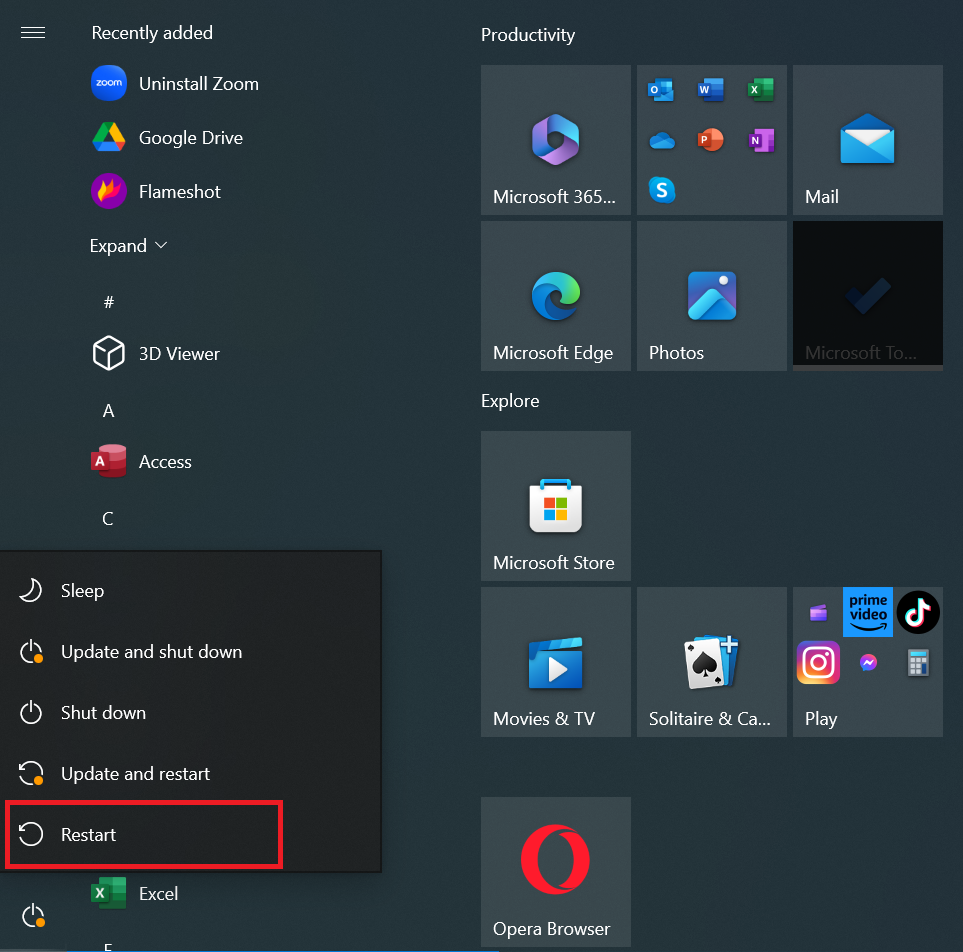
Before trying other troubleshooting methods, restart your computer. Restarting can clear minor glitches and issues that otherwise seem unexplainable. You never know what magic a simple “turn off and on” can do.
2. Clear the app cache
Cached data and temporary files might be causing the problem. To fix this, clear the app’s cached data. This won’t delete your files stored in Google Drive.
- Press the “Windows key + R” to open the “Run” box. In this box, type “%LOCALAPPDATA%\Google\DriveFS“, then press “OK“.
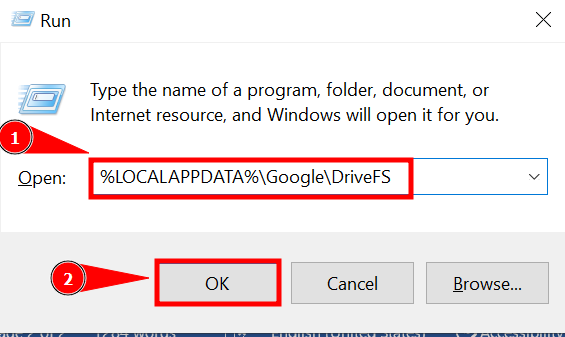
Type and press OK - Press “Ctrl + A” to select everything in that folder.
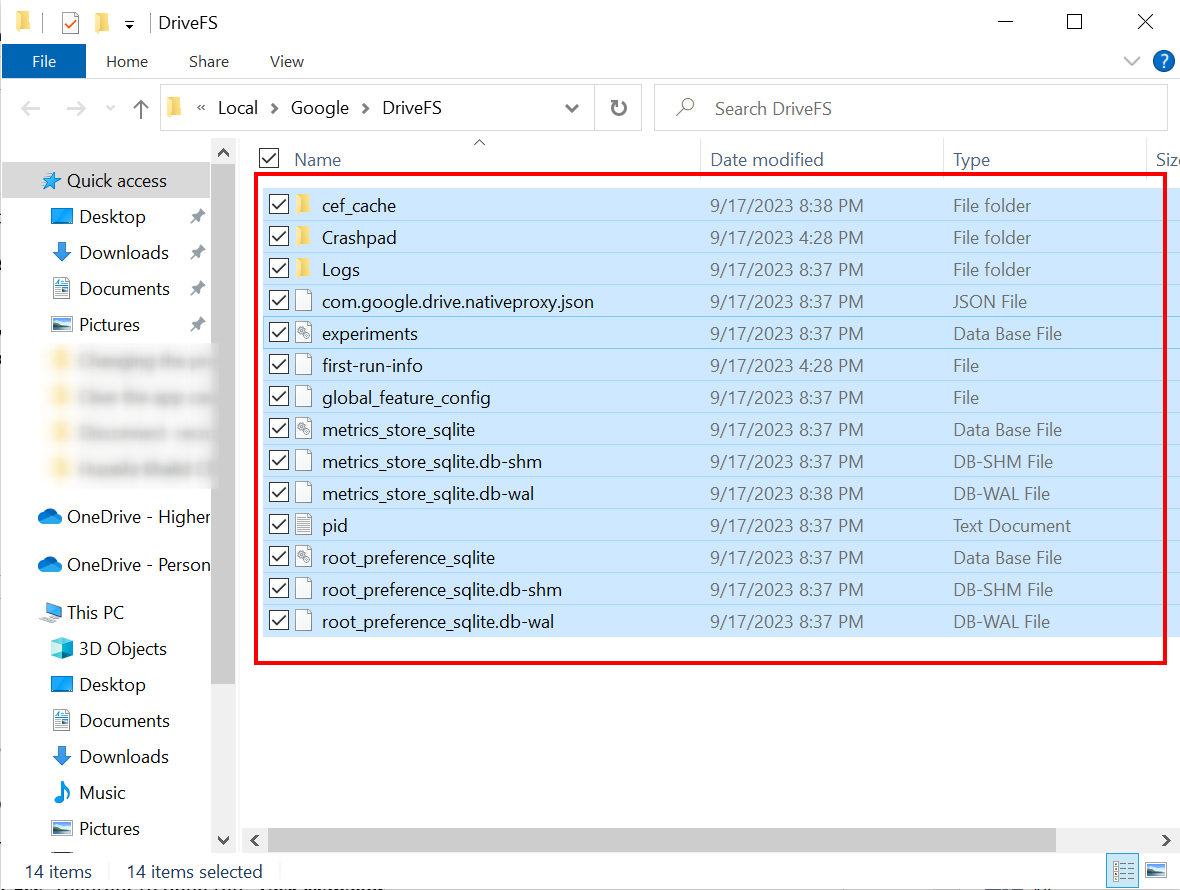
Use Ctrl A - Hit “Shift + Delete” or right-click and select “Delete” to remove all those files.
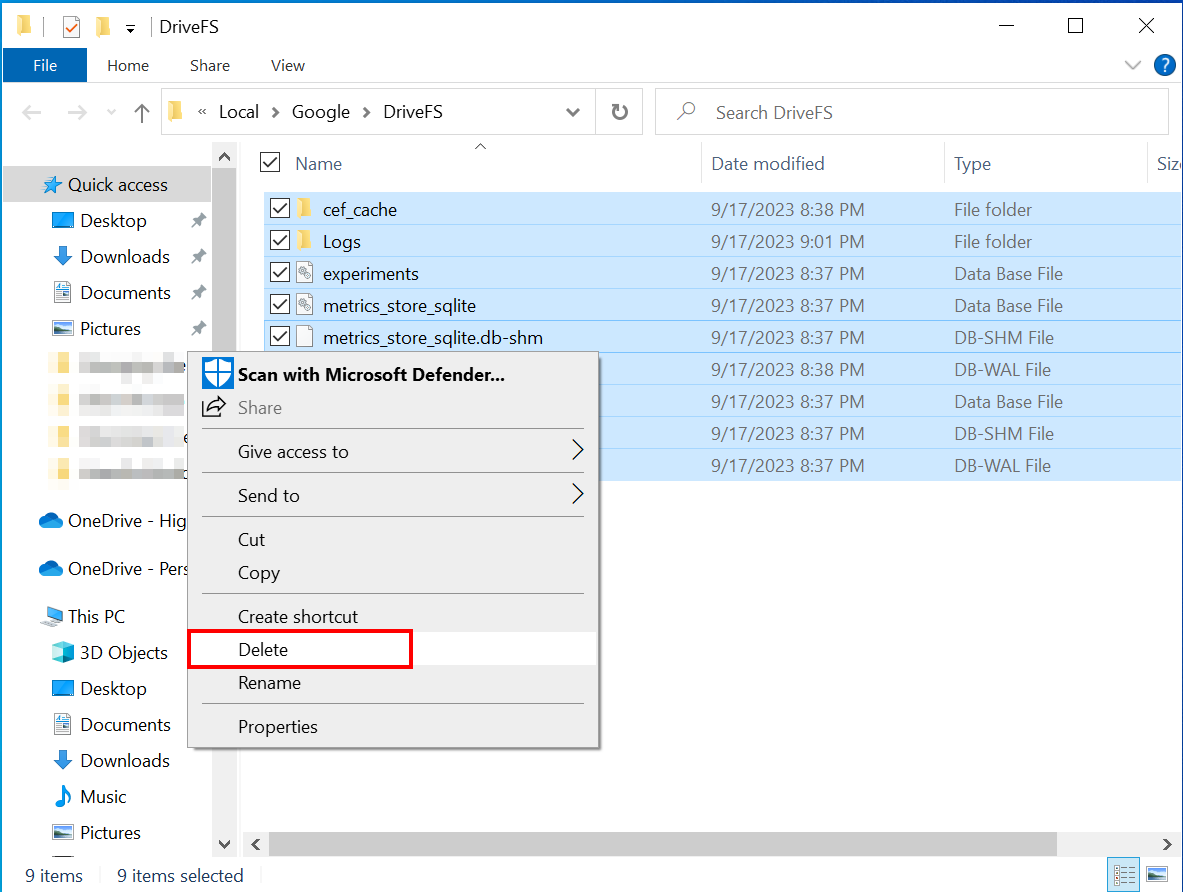
Hit Shift + Delete
3. Force Quit Google Drive
If Google Drive isn’t responding or is stuck, force-closing it can often fix the problem.
- Press “Ctrl + Shift + Esc” together to open the “Task Manager.”
- Choose the “Processes” tab.
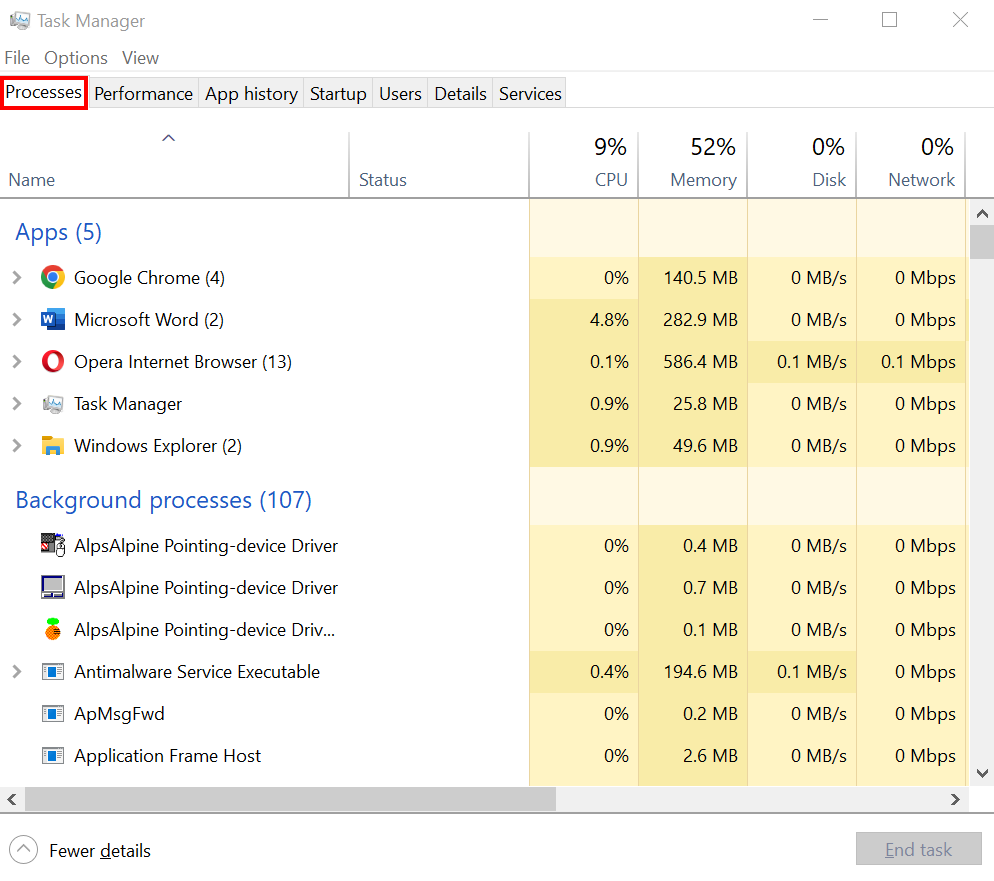
Choose the Processes tab - Find and select “Google Drive” from the list.
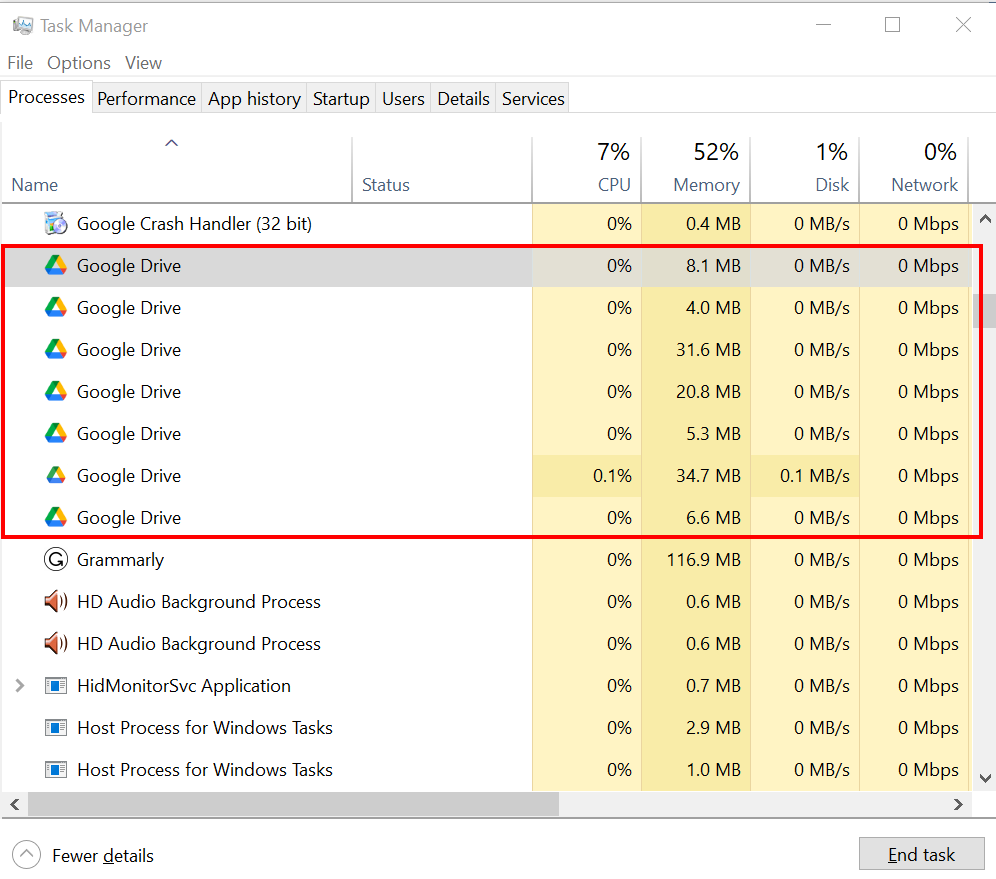
Find and select Google Drive - Press the “End task” button.
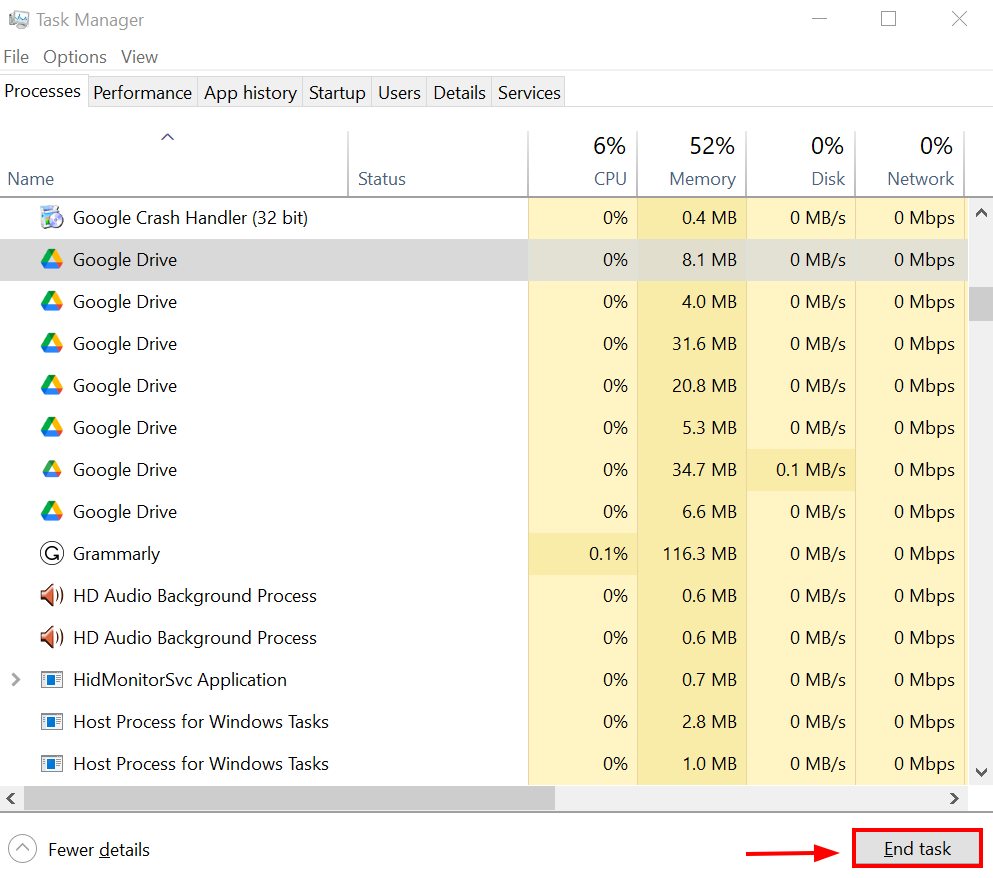
Press the End task
By doing this, you shut down Google Drive completely. Then start it again—this often clears up the issue.
4. Uninstall and Reinstall Drive for Desktop
Perhaps the installed version of the Google Drive desktop app isn’t right for your system, or it became corrupted. To resolve this, uninstall it and reinstall Drive for desktop from the official source.
- Open Windows “Settings“, then choose “Apps.”
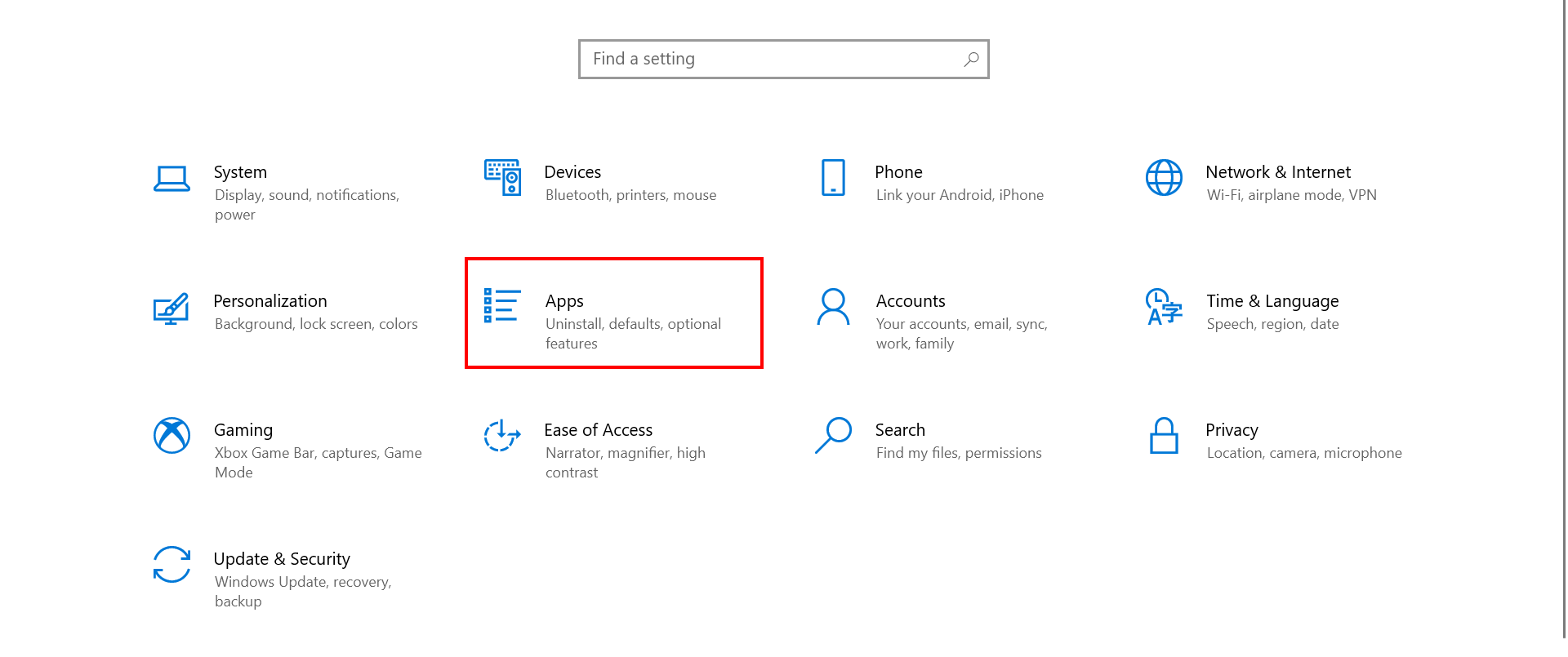
Open Windows Settings then choose Apps - Look for Google Drive in the list, click it, and select “Uninstall.”
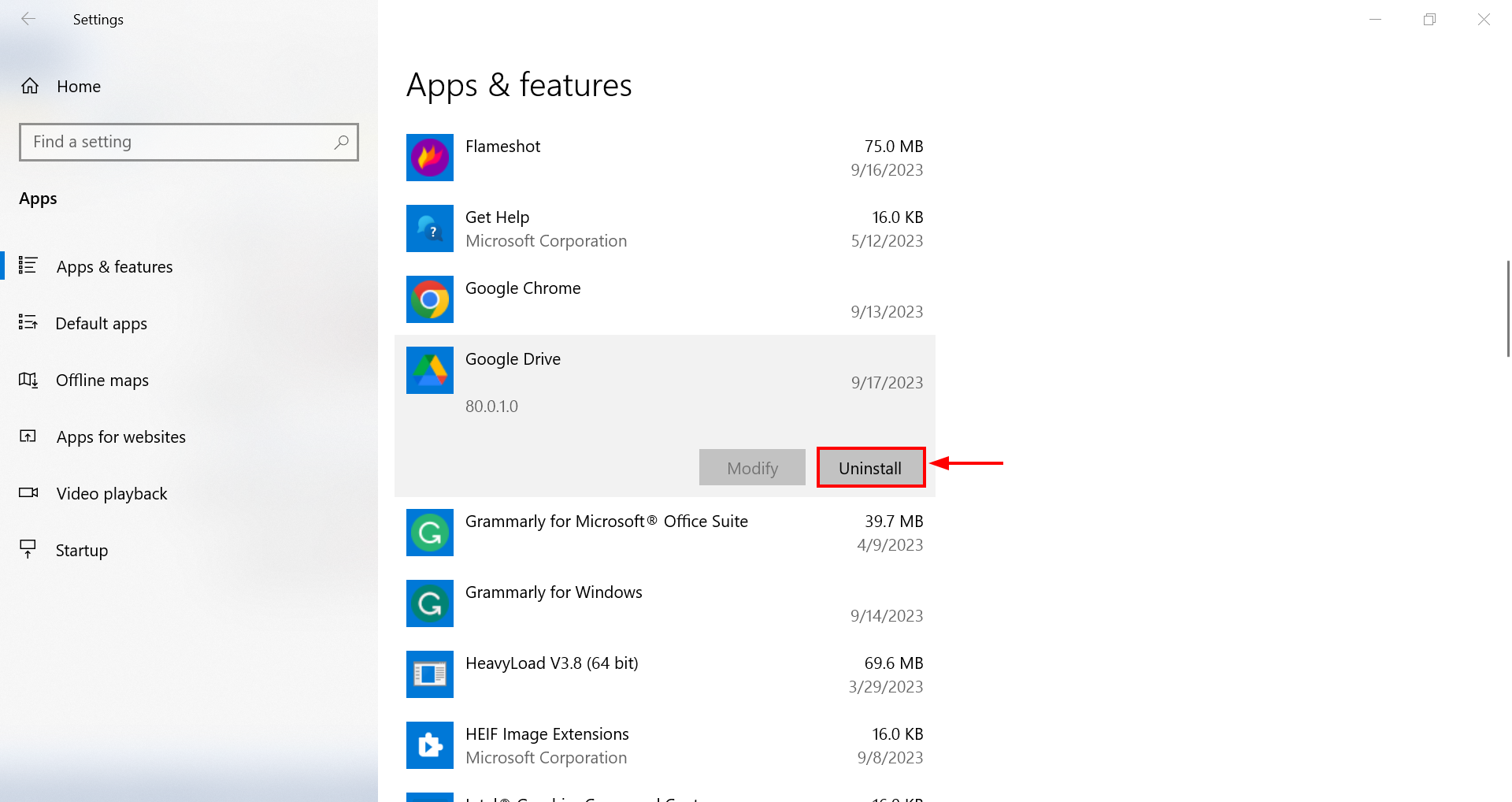
Click Uninstall - Install Drive for desktop from the official Google Drive site and set it up.
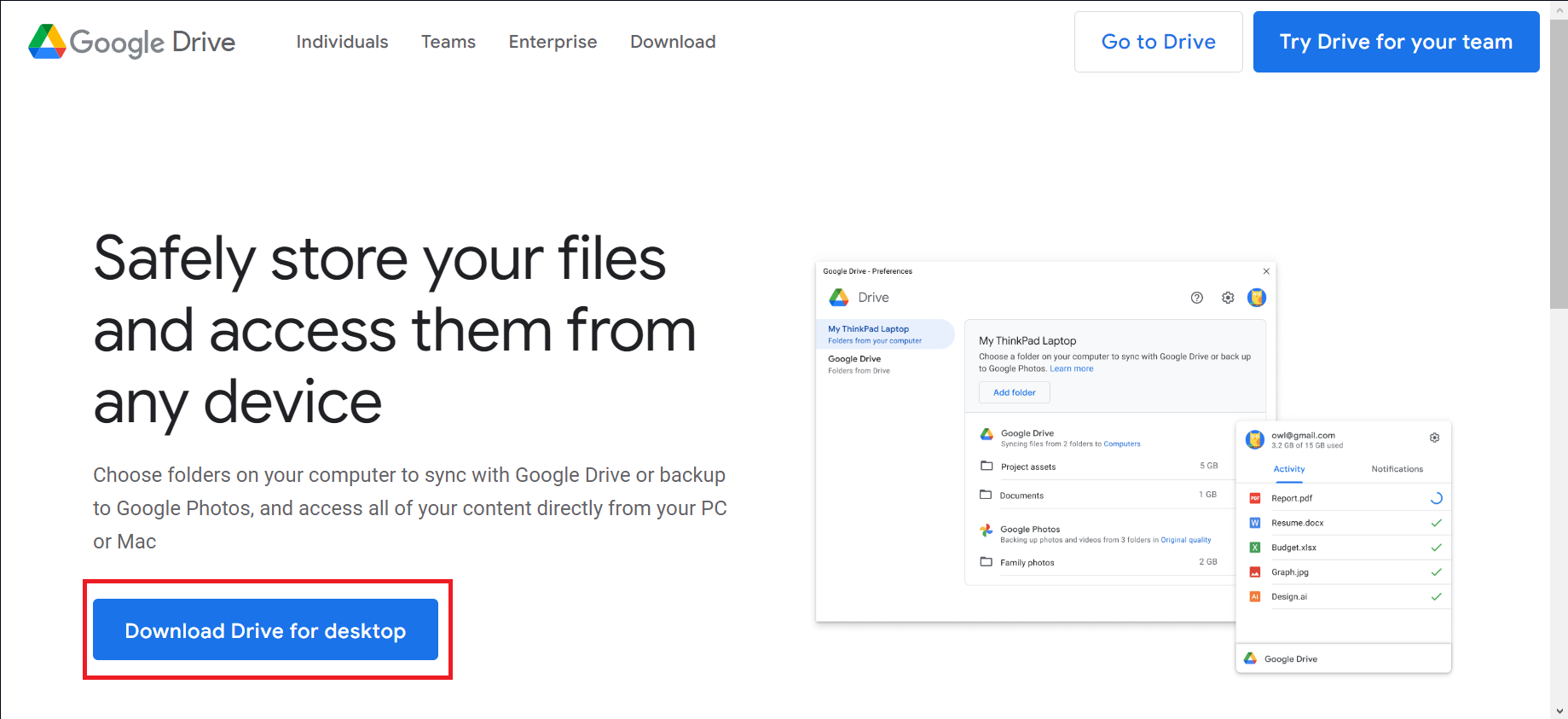
Download Drive for desktop
5. Opening Google Drive as an administrator
Sometimes, giving Google Drive more control can help. Starting it with admin rights ensures it has the access it needs to start properly and run as intended.
- Click on “Start” and type “Google Drive.”
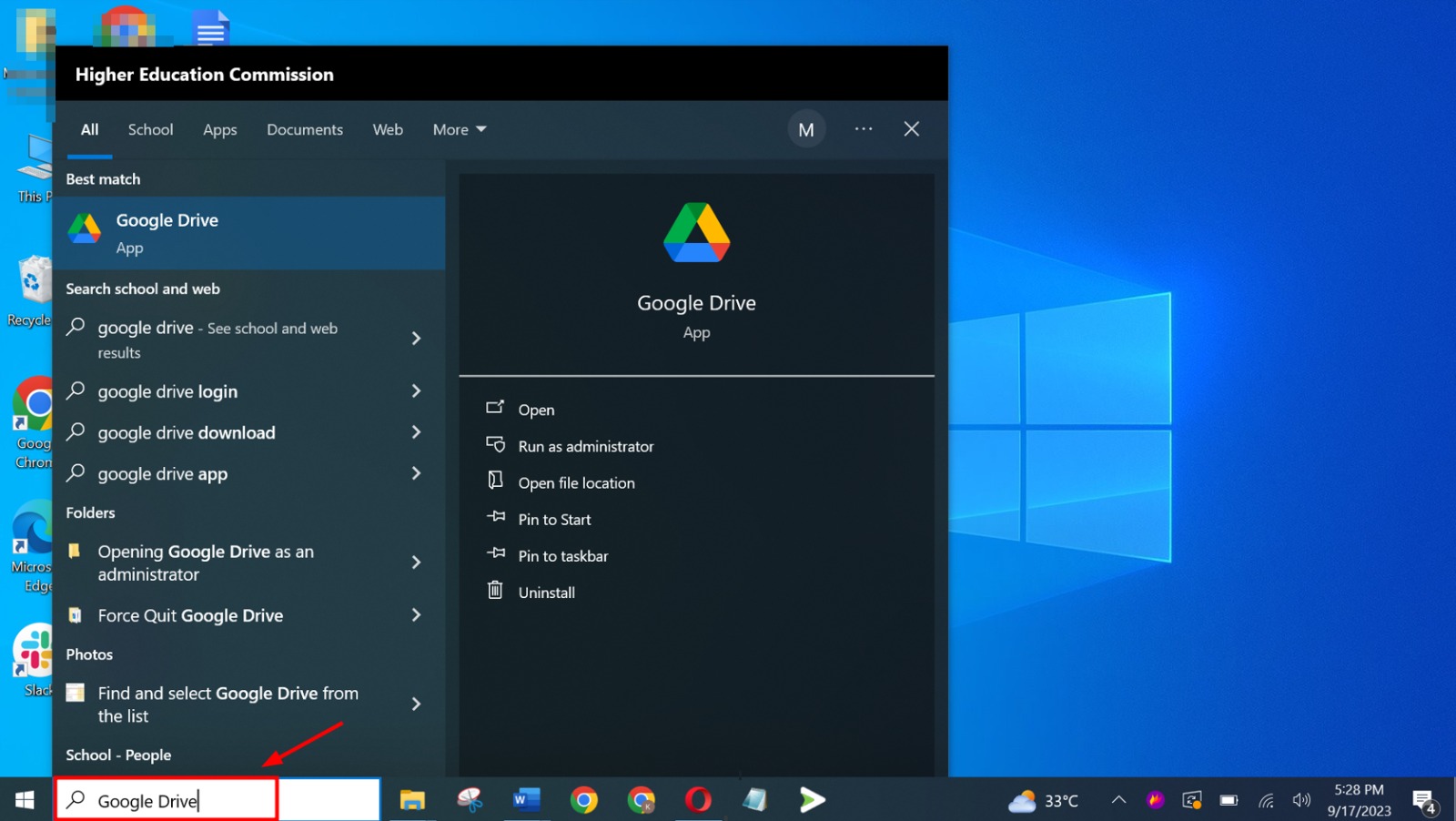
Search Google Drive from Start - Choose “Run as Administrator.”
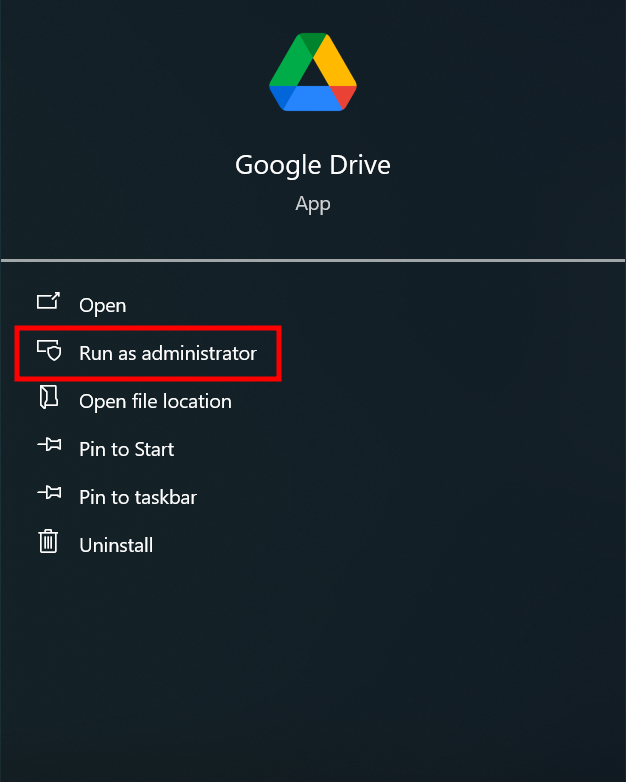
Choose Run as Administrator - See if the Google Drive launch issue is resolved.
6. Changing the Proxy Settings for Google Drive
Changing the proxy server settings in Google Drive might fix the problem. Incorrect proxy settings can be why Google Drive isn’t opening as it should on your computer.
- Find the Google Drive icon on the Windows taskbar and open its “Preferences.
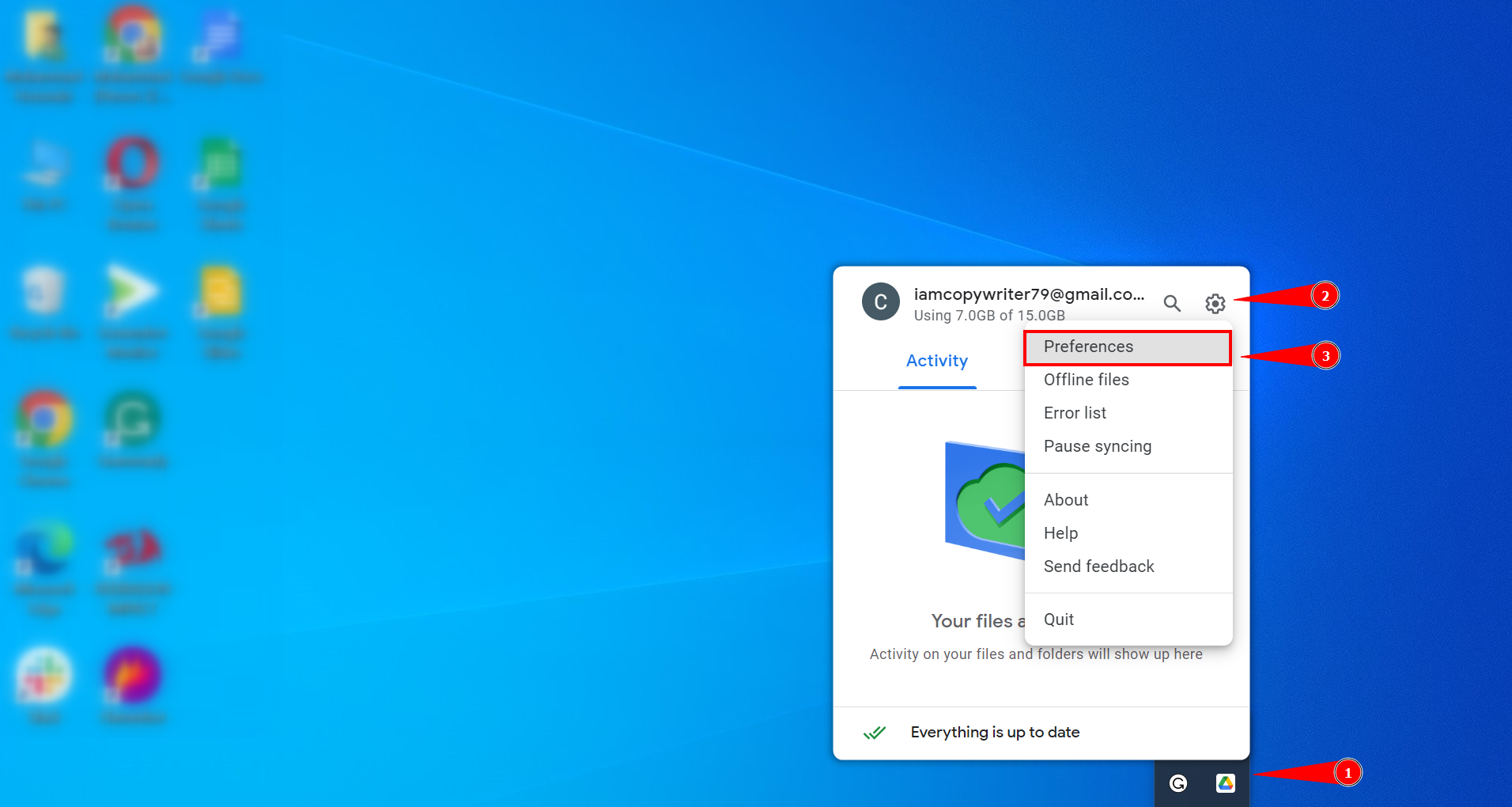
Open its Preferences - Click on the “Gear” symbol to see more options.
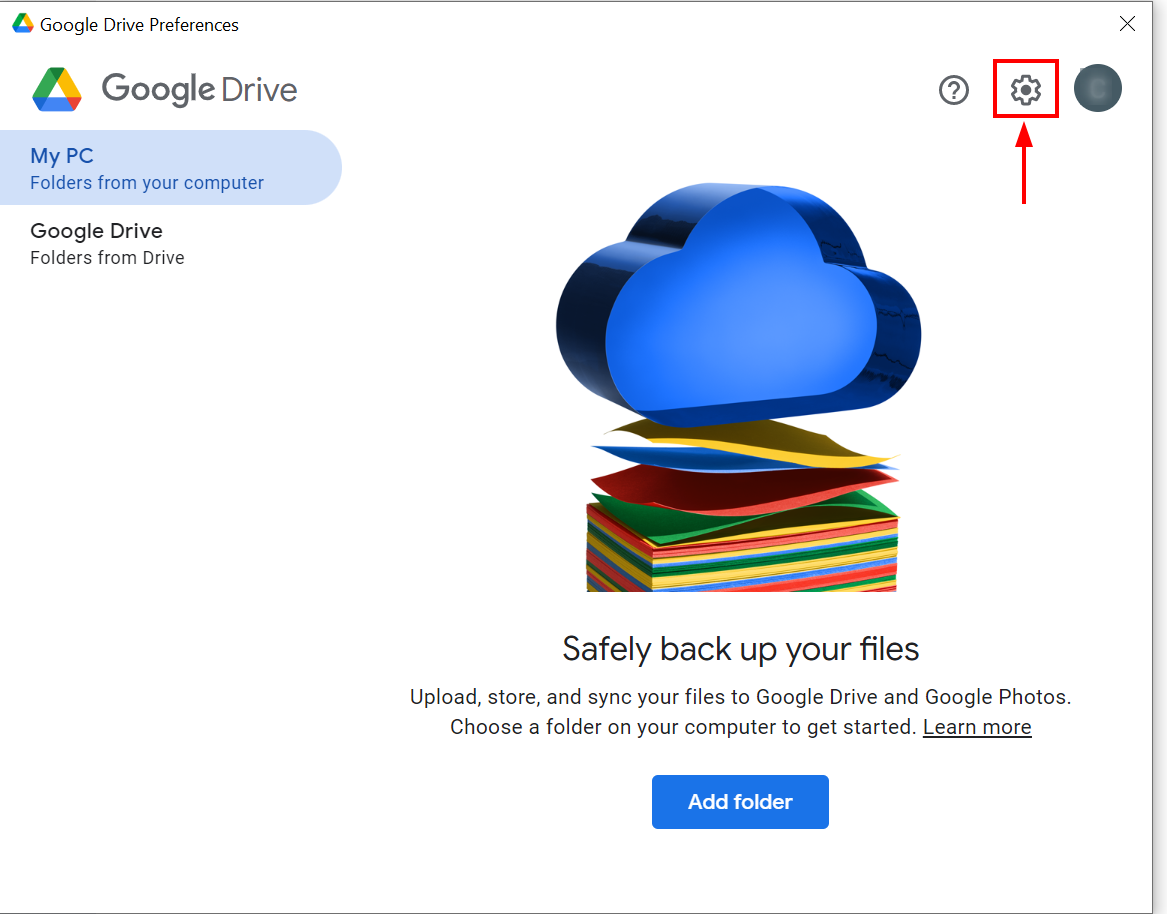
Click on the Gear symbol - Scroll down and look for “Proxy Settings.”
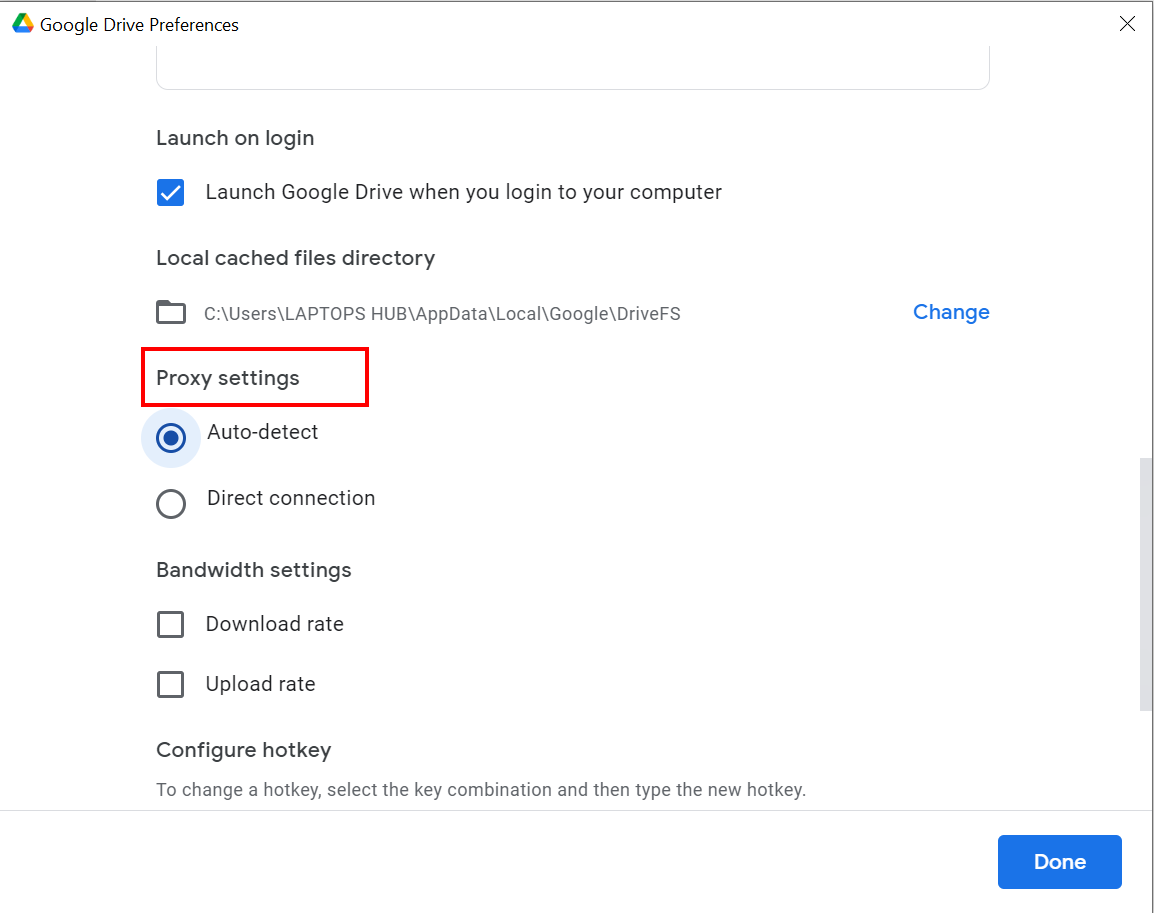
Look for Proxy Settings - Switch Proxy Settings from “Auto-detect” to “Direct Connection” and click “Save” to see if the problem is fixed.
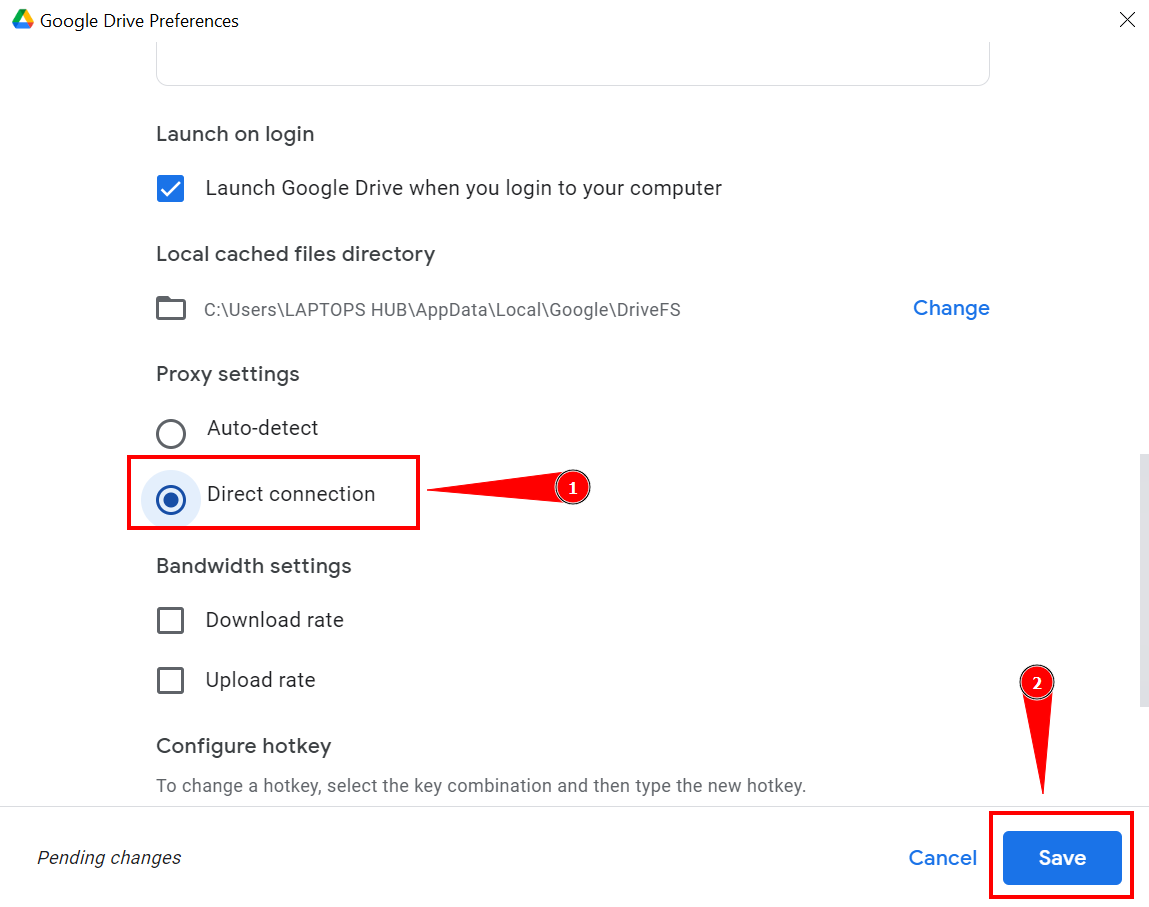
Click Save to see if the problem’s fixed
7. Check your internet connection
Make sure your internet is running smoothly. Some firewall, proxy, or network configurations might disrupt how Drive for desktop works. If possible, try another network, restart your router, or temporarily disable VPNs and proxies to test.
8. Disconnect & Reconnect your Account
If there are any unsynced files, they might be in your Lost & Found folder. This folder will be removed once you log out. Make sure you save these files elsewhere before proceeding.
- Access “Google Drive” from the Windows taskbar.
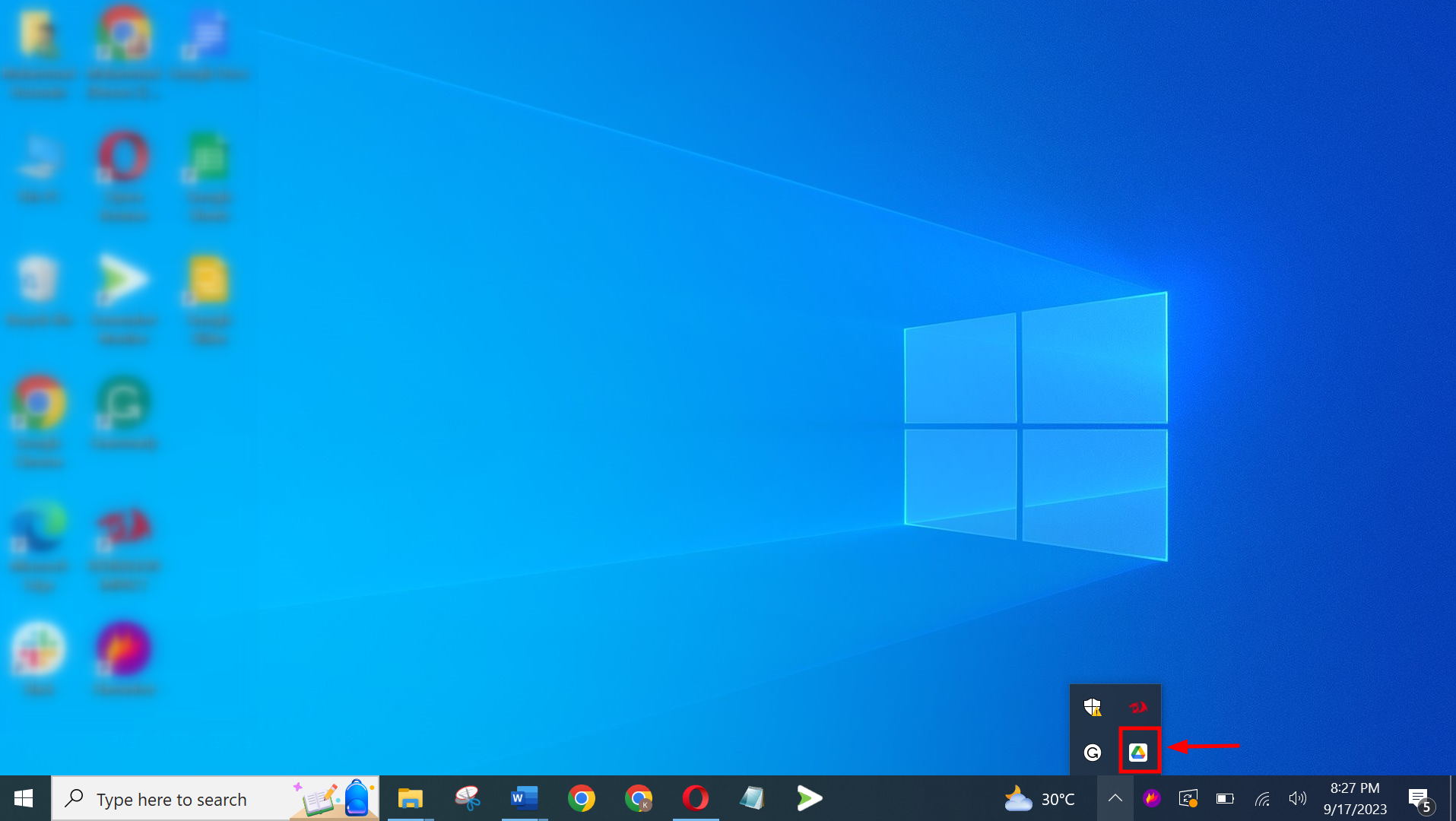
Access Google Drive - Select the account you want to disconnect and click “Settings.”
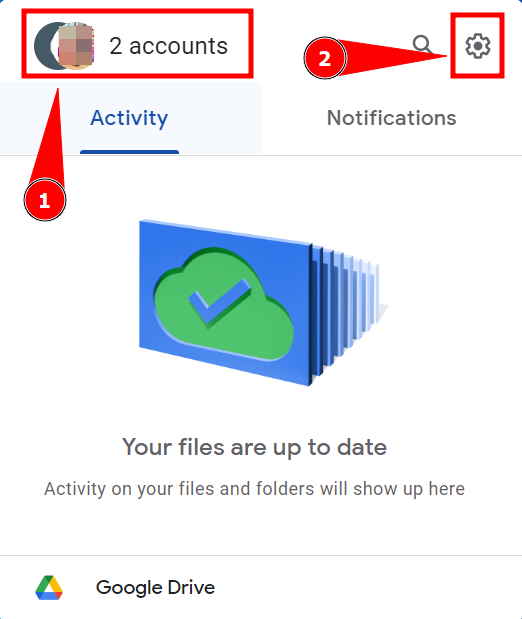
Select the account you want to disconnect and Click Settings - Go to “Preferences.”
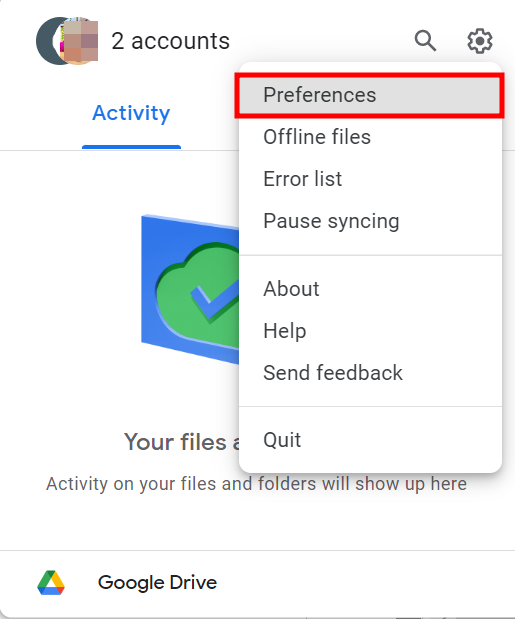
Go to Preferences - Choose “Disconnect” account.
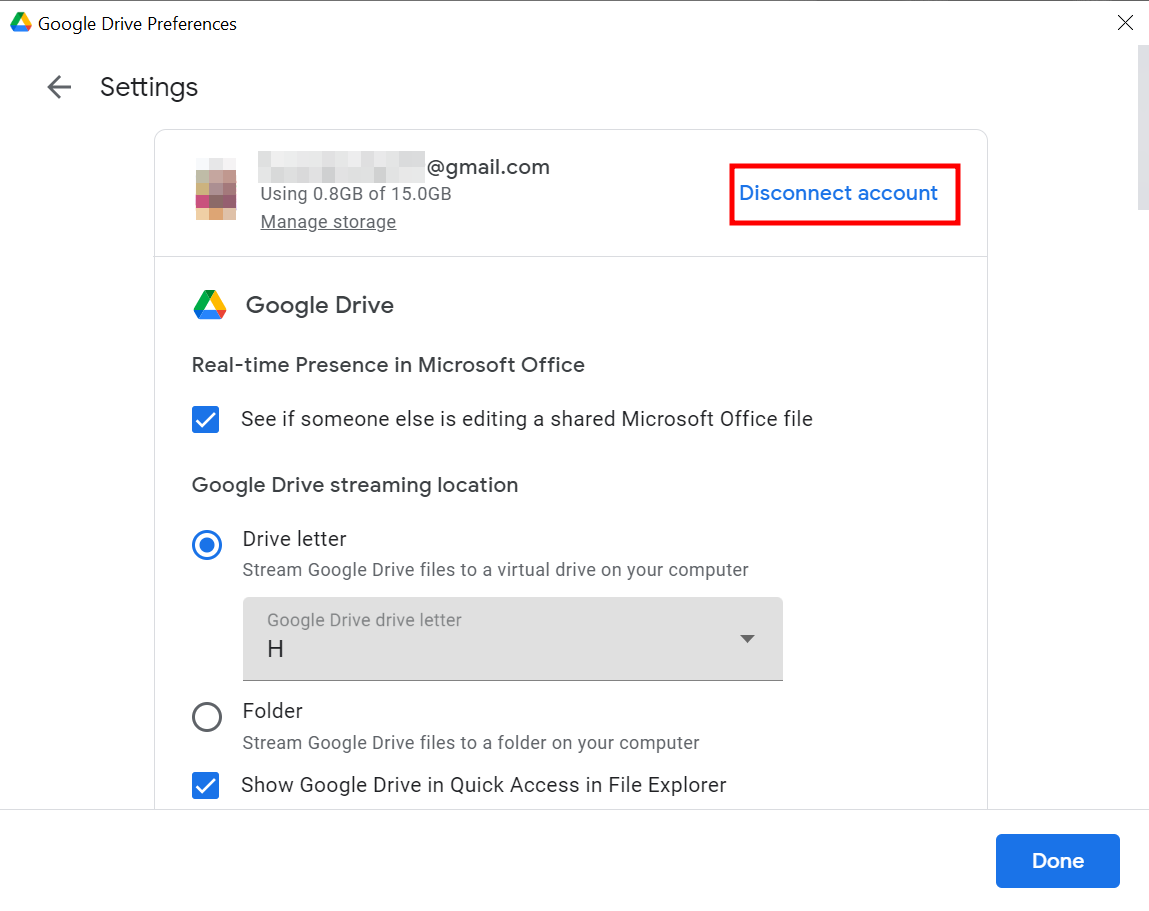
Choose Disconnect account - Sign in again.
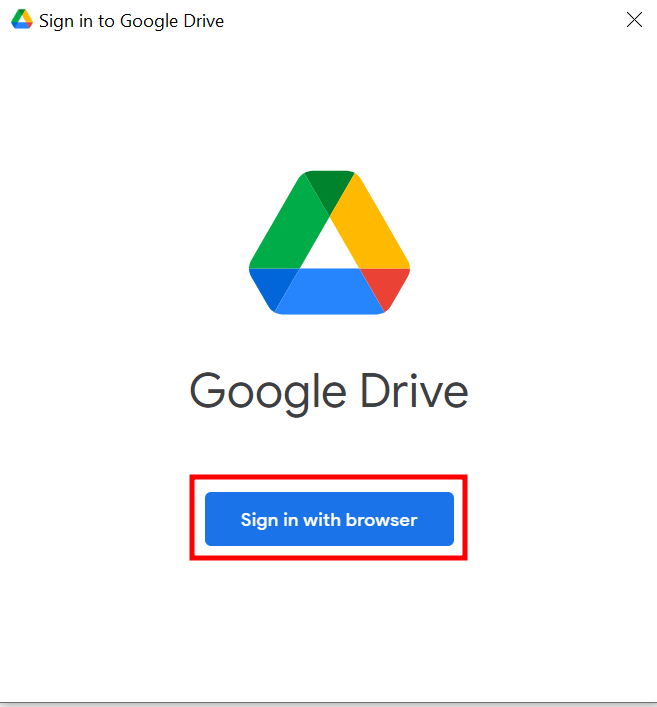
Sign in again - Select a new location for your Google Drive folder.
 Reviewed by
Reviewed by 




